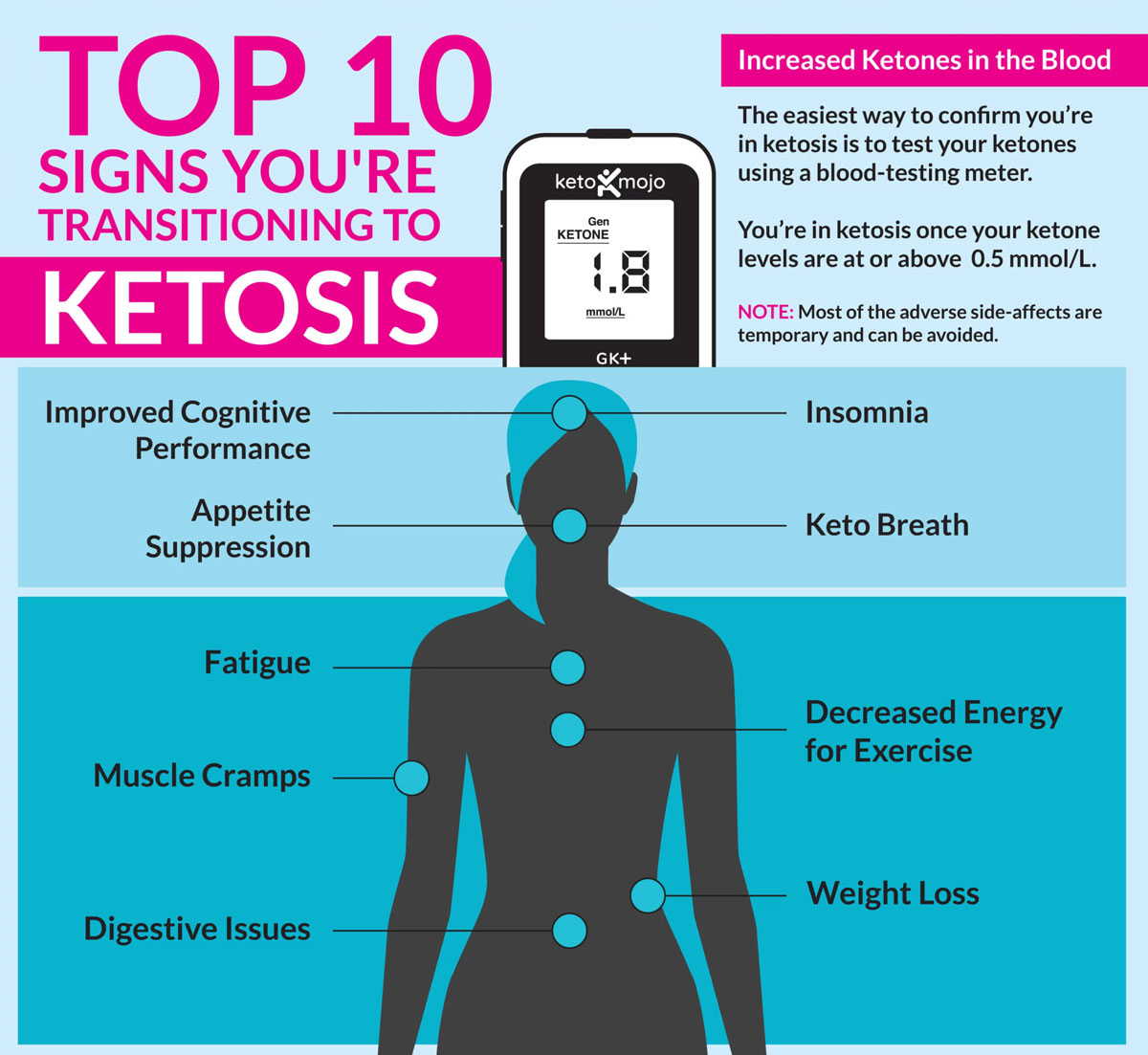Warning: contains spoilers! Ketones don’t function the way you think they do. What’s old is new again in so many areas. Although the ketogenic, or “keto,” diet has been known since the 1930s, interest in this high-fat, extremely low-carb method of eating has recently increased. You can find various variants on the keto theme by talking to your friends, browsing the internet, or reading the nutrition articles in your favorite magazine. There are several variations of this well-liked eating plan, including clean keto, dirty keto, calorie-restricted keto, high-protein keto, the Paleo/keto hybrid, keto cycling, protein-sparing keto, and even a lazy man’s keto. Its supporters will claim that this diet will change your life; if you follow the ketogenic diet “right,” whatever that may include, you’ll soon notice that you’re losing weight more quickly and that your blood pressure, cholesterol, and energy levels are all improving. Who would not desire that?
While each sort of ketogenic diet has its own distinctive characteristics, their fundamental concept is the same and, as it turns, falsely straightforward. According to keto specialists, your body enters a special metabolic condition known as ketosis when you substantially limit your carbohydrate intake and replace it with 80 percent of your daily calories from fat. In the ketosis state, the liver converts fats into unique molecules called ketones (also known as ketone bodies), which are said to be a magical fuel source that may be used to power the body and brain instead of glucose that is obtained from carbohydrates. The underlying premise is that a ketogenic diet would transform you into a very effective fat burner, enabling you to lose weight quickly and get a variety of additional health advantages. Great, isn’t that right?
The prevailing idea for why ketogenic diets, albeit difficult to follow, are so good to health has been this extremely basic explanation of ketosis (don’t worry, I’ll go into more depth in the future articles).
Ketones are not the magical cellular fuel that so many of us believed they were, which is the sole issue. We now realize they aren’t a very good fuel source at all. In fact, the idea that ketones can improve health as a whole is completely false. That does not imply that ketones are not significant. These tiny molecules, which I’ll go into more detail about in the subsequent articles, are essential for reducing the strain on your mitochondria, the powerhouses of your cells, in ways that can both prevent and treat illnesses of aging as well as weight gain. Even more crucial? When you understand what ketones actually accomplish, you’ll see that you don’t need to starve yourself or follow a monotonous, high-fat diet to benefit from them.
A STORY OF TWO BLOG VISITORS
After learning she had prediabetes, Lisy, a mother of two in her forty-threes, sought assistance at my Palm Springs clinic. Although her resting blood sugar, or glucose level, was over the usual range, it was not yet high enough to be classified as type 2 diabetes in its fullest form. Her doctor recommended changing her diet and starting her on a statin medication for high cholesterol in order to “right the ship,” so to speak. That led her to knock on my door.
I concurred with her doctor that she had metabolic syndrome, a collection of health problems that can raise one’s risk of diabetes and cardiovascular disease, as well as insulin resistance, a condition where your body actually fights the insulin your pancreas produces so your cells can’t get the essential glucose they need to thrive. You’ll soon discover that Lisy had an inflexible metabolism, like almost all Americans. Sounds awful, huh? It is. Excessive inflammation was also detected in the tests. But I didn’t see any justification for putting her on a statin. I offered that she tries my Strict Keto because I believed that we could handle her dietary problems.
For new lab tests, Lisy returned to the office three months later. Her blood work revealed she had lost 15 pounds and was no longer prediabetic. Unbelievably, at least to her primary care physician (but not to me), her cholesterol had also decreased to the point where her regular physician no longer saw the need for a statin. Lisy was naturally overjoyed. She slept better and felt more energized, and like many of my patients, she was inspired to carry on. We reduced the high intake of healthy fats I had advised she consume to encourage ketosis and set up a follow-up appointment.
Six months later, Lisy came back and had lost another 20 pounds, and her lab results had never looked better. Her HbA1c, a measurement of how effectively your blood sugar is controlled, was down to 4.9 (anything under a 5, in my opinion, is worthy of a genuine gold star). Her blood tests revealed no symptoms of inflammation. Briefly said, Lisy’s case demonstrated as the ideal keto success tale.
With one exception: Lisy was not content. She shared my satisfaction with her test results. She was eating like a horse, but worried friends were remarking that she was a little too skinny. Her weight continued to drop even when she resumed eating a variety of foods. She informed me that she was prepared to stabilize and cease losing weight.
Lisy is not the only one who have encountered this event, let me assure you of that. Many of my keto friends have reached a similar stage with my eating strategy when they had difficulty maintaining their weight. I explained to them, as I did to Lisy, that they had simply transformed into incredibly effective fat burners, contrary to popular belief about ketogenic diets. What are they whining about, you may be asking. I wish I experienced that kind of issue! Follow a few dietary guidelines, take a few supplements, and eventually wish to put on a few pounds? It seems like the realization of a dream.
Now compare Lisy’s experience with that of a different one of my keto friends. Around the same time that Lisy visited me, Nataly also did, and the similarities didn’t stop there. In her thirties, she was also a busy mother. But she was overweight, unlike Lisy. A few years before, her previous physician had advised her to start a ketogenic diet. She had been trying to adhere to the typical keto diet exactly, but not only had she been unable to lose any weight, but over the course of a year, she had actually gained more than 15 pounds. She claimed that the more fat she consumed, the more weight she put on.
Nataly visited me because her primary care physician, who had originally advised her to try the ketogenic diet, didn’t think she was adhering to it properly. This happens frequently; when ketogenic diets don’t provide the desired outcomes, it’s frequently assumed that the dieter isn’t consuming enough fat to induce ketosis (and may also be sneaking in too many carbohydrates and/or protein-rich foods). Most of the time, this assumption does not intend to cast doubt on the dieter’s moral character or willingness. Our keto friends clearly put in a lot of effort. However, typical ketogenic diets are quite difficult to maintain, especially over the long term. This is one of their largest drawbacks.
Despite her best efforts, it was obvious that Nataly’s diet (or lack thereof) had not aided in the production of ketones in her body, I gently emphasized to her. Hearing this stunned, perhaps apoplectic, her. She was similar to many of the folks who visit me after having difficulty eating keto, I said to lessen the blow. They believed they were following a ketogenic diet, but they were simply not consuming enough of the correct fats and other foods which you will discover in articles on my blog to enter ketosis.
Then Nataly showed me her eating journal. She was adhering to the majority of keto guidelines perfectly. Her fat intake accounted for about 80% of her total calorie intake. However, when we examined her blood work, we discovered that, in contrast to Lisy, her HbA1c value was in the prediabetic category. Her fasting insulin levels were high, indicating that she was insulin resistant that is, her body was no longer responding to insulin as it should, allowing that insulin to build up to high levels in her blood. It should be noted that the National Institutes of Health report that 1 in 3 Americans are prediabetic and, if the condition is not corrected, will go on to develop type 2 diabetes later in life. And as we now know, she only observed the scale’s readings increasing.
The tale of Nataly is one that I am also familiar with. Many people visit my blog after trying unsuccessfully to lose weight on a ketogenic diet of some kind. They are frustrated and perplexed, wondering why so many individuals can succeed with this method of eating but not them.
I should also mention that a third group of people visits my keto blog. These people are attracted by the idea of a ketogenic diet for weight loss, but they find the thought of consuming so much fat intolerable. They also frequently doubt the long-term healthfulness of a diet with such tight prohibitions on plant-based items.
As time went on, witnessing these various individuals achieve such disparate outcomes prompted some critical inquiries. How is it that some people, like Lisy, experience tremendous health benefits along with weight loss while others, like Nataly, have blood results that show deteriorating metabolic health?
It’s a riddle. What separates the Lisys from the Natalys of the world, you might be wondering. How can one lady follow the rules (and then later relax those standards) and lose so much weight while the other follows the identical criteria and puts on weight when both are on a ketogenic diet? I would have explained to you at the time that Lisy’s emphasis on consuming more plant-based fats and proteins rather than animal-based ones was assisting her body in developing into a more effective fat-burning machine. These variations, however, do not fully convey the situation. In fact, as I dug deeper into the subject, I quickly discovered something very amazing: the popular thinking regarding the keto diet’s impact on fat burning and metabolic efficiency was completely false. In fact, the synthesis of ketones makes your body less efficient at burning fuel. These substances work through the mitochondria of your cells to aid your body in burning calories. What else? To achieve that level of inefficiency, a diet high in fat is not necessary.
LEARNINGS FROM IDENTICAL TWINS
When two patients respond differently to the same intervention, it can be simple for a doctor to assume that there is some form of physiologic difference between them that cannot be readily seen perhaps it’s in their genes! Though the twins shared an identical DNA, they did not metabolize calories the same way, as was found in a previous study comparing sets of identical twins in which one sibling was overweight and the other was not. In actuality, the cellular energy manufacturers, or mitochondria, of the bigger twins were less active than those of the slimmer twins. Even their mitochondria were referred to as “lazy” by the researchers! It’s crucial to note that this does not in any way imply that the heavier twins were lazy; rather, it simply means that their mitochondria weren’t receiving the signals necessary to encourage them to pick up the pace. We’ll discuss these signals in more detail later.
The fault does not lay with your willpower, “fat” genes, or family history if you battle with your weight, as many individuals doâ45 percent of Americans are obese. It is entirely related to your mitochondria and how hard they are working, though. Their duty is to burn the calories you consume, but while they rest, those calories are retained and turned into fat. This raises the question of how to jolt those sluggish mitochondria into action and get them to start filling up the gaps.
As per conventional thinking, you have two options. You’ve probably heard it repeated ad nauseam that you should eat less and move more. Going “keto” is another choice if you want to transform your body into a fat-burning engine. However, the latter doesn’t always work out well for certain people, like Nataly. How come?
Everyone has that one skinny friend who can eat anything and everything without putting on any weight. While others, including myself and probably you, can complete an intense Spin class and still watch the scale numbers rise just by glancing at a croissant. It would appear that the slim twins and their skinny companions had a mystical way of making any calories they ingest vanish. The shocking news and the basis for this keto blog is that they do. You’ll soon discover that the world’s slim people have mitochondria that essentially waste a large portion of the calories they consume. Waste, that’s right.
Surprisingly, Lisy lost weight by eating in a way that activated her mitochondria. This is how she miraculously reached this point. What’s best? It didn’t call for an 80 percent fat diet. To stay in ketosis, she didn’t need to force down a pound of bacon and some shredded cheddar cheese. The process known as mitochondrial uncoupling simply required her to send her mitochondria the signals, they needed to open up their membranes and let those calories pass through. She wasn’t burning fat any more effectively, as I had so really advised her back then. She was actually turning into the complete opposite: a fuel waster.
NOTHING IS WHAT YOU THINK
In relation to ketones and their function in weight loss, wellness, and longevity, my posts(articles) reveal a brand-new and astounding paradox. They don’t appear to be some unique source of magical cellular fuel, as I previously said. They are actually essential signaling molecules that instruct your mitochondria to get functioning and begin burning calories.
Your digestive system has kindly broken-down carbohydrates, proteins, and fats into glucose, amino acids, and fatty acids that our mitochondria use to create energy for our bodies. These molecules are then transformed into adenosine triphosphate (ATP), an energy “currency” that our cells can actually use.
The most recent study, however, demonstrates that mitochondria are involved in a vast array of processes beyond energy production. They are essential for both survival and longevity. However, you need to let go of everything you thought you understood about keto in order to properly comprehend what mitochondria perform, as well as why ketones are produced, when they are produced, and their ultimate purpose.
You probably already know that I’m famous (or perhaps infamous) for challenging people’s long-held views about “healthy”. I’m prone to causing trouble. Even in my former profession as a heart surgeon, I rebelled against the status quo and found novel approaches to safeguarding my patients during open-heart surgery that are now regarded as best practices in medicine. Now, like Mark Antony in Shakespeare’s well-known play, I’m here to discredit the keto diet or at least its traditional ideas as well as the majority of other purportedly healthy diets.
What’s best? You won’t need to worry about fat percentages, macronutrient ratios, calories, or any other metrics once you comprehend the function of mitochondria and how they impact your metabolism. For those like Lisy, Nataly, and even all others who have wanted to attempt a keto approach but couldn’t get past the fat requirements, this new knowledge offers a healthy way ahead. And the reason for this is that, as you will discover in the next posts, the role of ketones in weight reduction and health is not what you think it is, and you don’t have to consume a lot of saturated fats to reap their benefits. Intrigued? Let’s get going.






